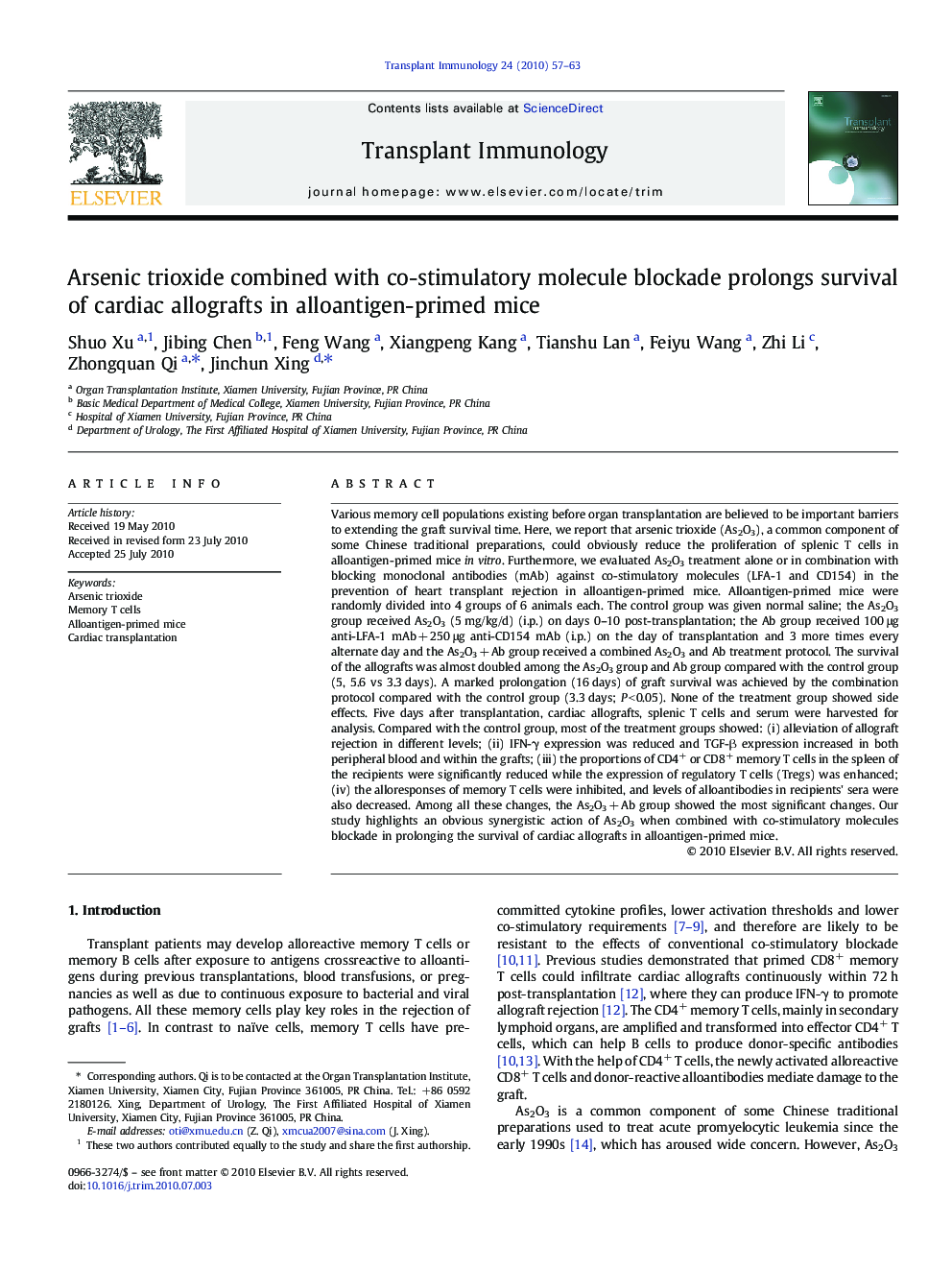| Article ID | Journal | Published Year | Pages | File Type |
|---|---|---|---|---|
| 3392217 | Transplant Immunology | 2010 | 7 Pages |
Various memory cell populations existing before organ transplantation are believed to be important barriers to extending the graft survival time. Here, we report that arsenic trioxide (As2O3), a common component of some Chinese traditional preparations, could obviously reduce the proliferation of splenic T cells in alloantigen-primed mice in vitro. Furthermore, we evaluated As2O3 treatment alone or in combination with blocking monoclonal antibodies (mAb) against co-stimulatory molecules (LFA-1 and CD154) in the prevention of heart transplant rejection in alloantigen-primed mice. Alloantigen-primed mice were randomly divided into 4 groups of 6 animals each. The control group was given normal saline; the As2O3 group received As2O3 (5 mg/kg/d) (i.p.) on days 0–10 post-transplantation; the Ab group received 100 μg anti-LFA-1 mAb + 250 μg anti-CD154 mAb (i.p.) on the day of transplantation and 3 more times every alternate day and the As2O3 + Ab group received a combined As2O3 and Ab treatment protocol. The survival of the allografts was almost doubled among the As2O3 group and Ab group compared with the control group (5, 5.6 vs 3.3 days). A marked prolongation (16 days) of graft survival was achieved by the combination protocol compared with the control group (3.3 days; P < 0.05). None of the treatment group showed side effects. Five days after transplantation, cardiac allografts, splenic T cells and serum were harvested for analysis. Compared with the control group, most of the treatment groups showed: (i) alleviation of allograft rejection in different levels; (ii) IFN-γ expression was reduced and TGF-β expression increased in both peripheral blood and within the grafts; (iii) the proportions of CD4+ or CD8+ memory T cells in the spleen of the recipients were significantly reduced while the expression of regulatory T cells (Tregs) was enhanced; (iv) the alloresponses of memory T cells were inhibited, and levels of alloantibodies in recipients' sera were also decreased. Among all these changes, the As2O3 + Ab group showed the most significant changes. Our study highlights an obvious synergistic action of As2O3 when combined with co-stimulatory molecules blockade in prolonging the survival of cardiac allografts in alloantigen-primed mice.
